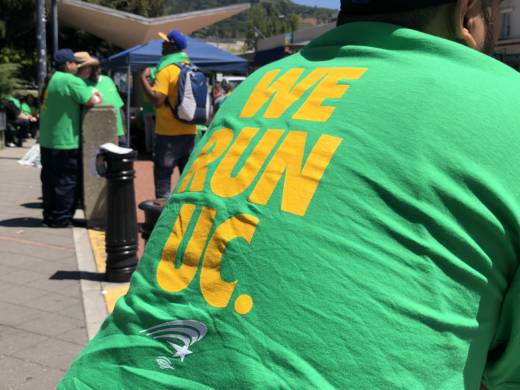Thousands of custodians, security guards, gardeners and other service workers at University of California campuses started a three-day strike Monday to address pay inequalities and demand higher wages.
Strikers gathered at sunrise on the 10 campuses throughout the state, wearing green T-shirts and carrying signs that call for "equality, fairness, respect."
The strike was called last week by American Federation of State, County and Municipal Employees Local 3299, which represents 25,000 service workers, after the union and the university could not agree on a new contract and mediation efforts failed.
Another 29,000 nurses, pharmacists, radiologists and other medical workers heeded the service workers' call for a sympathy strike and will join the walkouts Tuesday and Wednesday, which is expected to disrupt thousands of surgeries and other appointments.
Medical center officials said they would continue to deliver essential patient care services, but hundreds of surgeries and thousands of appointments were rescheduled last week in anticipation of the strike.

